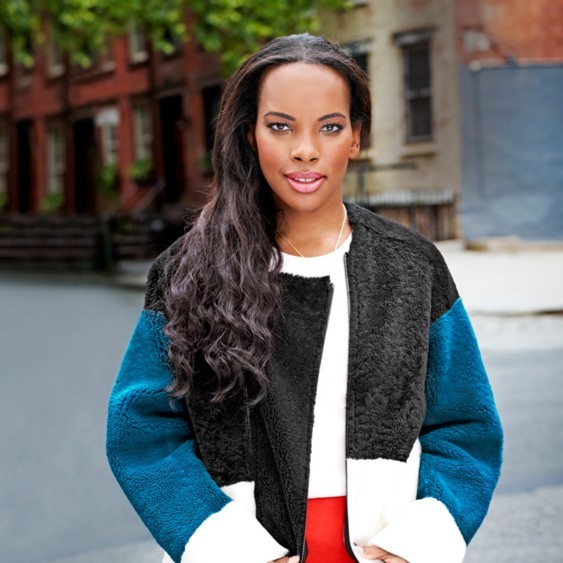In her conversations with business students, Cleo Capital‘s Sarah Kunst makes sure they understand that over-optimization and minimizing risks can take away from the experiences and lessons that have helped her grow throughout her journey.
Now managing director at a San Francisco VC firm that also runs programs for women interested in venture capital, as well as a contributing editor at Marie Claire, she has learned some key lessons from working as a founder, collaborating with a venture capital firm and finally entering her current investing role.
In a Startup Grind Funding Summit conversation presented with Comcast NBCUniversal LIFT Labs and led by Victress Capital Managing Partner Lori Cashman, Kunst discussed her beginnings in marketing brands such as Red Bull and Chanel, the work she does today, and how founders can best appeal to investors.
Here are seven takeaways:
Being a founder is far from glamorous.
When asked about the misconceptions of life as a founder — she founded subscription workout app Proday — Kunst looked back on her own experience and was transparent about the challenges she faced.
Using the analogy of running a marathon, she explained that people often only see the satisfaction runners have after completing a marathon — and not the difficult preparation that went into it.
“It’s almost never fun,” she said. “If you live in New York or Boston you go [watch] on a marathon day, but running a marathon is not fun. [We’re just] seeing the end result for 30 seconds. Starting a company is similar. There are tons of people who do it, not because it’s fun, but because people get fulfillment out of it.”
Great founders understand why their companies exist in the market.
As an investor, Kunst explained that she is generally interested in founders whose products have a great market fit. It needs to be obvious why that founder is building their particular company.
Years ago, she said, she met a man who was interested in founding a company that could produce baby strollers. After talking to him, Kunst learned that the man had a conversation with his cousin who was having a baby and shopping for expensive baby strollers.
That fleeting sentiment that more strollers were needed wasn’t enough for her and wasn’t the impetus of a company in which she wanted to invest.
“The worst scenario isn’t that your company fails, but that your company succeeds and you spend the next 20 years building fucking strollers,” she said.
Understand how much money is in your market.
Founders need to understand that investors are looking for companies that can provide them with big exits. Building a company can already be hard, and attempting to build a billion-dollar company in a space that may only have room for one such business can prove even more more difficult.
“It’s much easier to build a billion-dollar company in a space that has a trillion-dollar market,” she said. “Do yourself a favor.”
Being coachable and open to change is key for any founder.
After noticing that her blush did not complement her lipstick, Kunst joked that it could be very easy for her to go down a rabbit hole and ponder why she didn’t hire Beyonce’s glam squad before the day’s event or consulted a plastic surgeon about getting a new face altogether.
Similarly, Kunst shared that founding a company and working with investors can be a tedious process that requires an aversion to rabbit holes. She recommended that founders be coachable and understand that an unwillingness to change can affect their bottom line.
“Be super coachable, because you don’t know everything,” she said. “Otherwise, it only hurts you, and to be explicit, it hurts the amount of money you will make from the company.”
Founders have to give themselves grace and show patience.
Continuing with the marathon analogy, Kunst said that the startup journey is less about failure and more about perseverance. In preparing for a marathon, she said that a runner may start by running one mile, then two, before taking a rest day. That same practice has to be applied to operating a startup, where founders may go through a series of ups and downs before reaching what they consider to be success.
And the journey never ends: “Until you’re dead, you’re not done,” she said.
“Elon Musk needs his Twitter followers more than his Twitter followers need him.”
Kunst used Tesla founder and billionaire Elon Musk as an example of how every person needs to help other people. Whether a founder is developing a product or service that people need to buy in order to be successful, or an individual finds that they are one person in a more expansive ecosystem that needs support, Kunst said that founders should focus on helping others at a primary level in their mission.
“There is no not supporting other people,” she said. “You can’t do anything in a vacuum and anybody that thinks you can has not tried to breathe in a vacuum.”
Mentorship doesn’t have to come from a certain person or circumstance.
Mentorship does not have to develop from any one relationship or chance occurrence, Kunst said. Founders can follow the ideals and work of leaders they are fond of, such as the late civil rights leader Dr. Martin Luther King Jr., as opposed to waiting for and reaching out for desired mentors who are unavailable to them. Even negative situations can show founders what not to do in the future.
“The idea that this ideal person that you want to learn from has time and bandwidth to help you is just not true,” she said. “You’re not any more worthy or unworthy of mentorship. The reality is that everyone and everything can be a mentor to you.”







